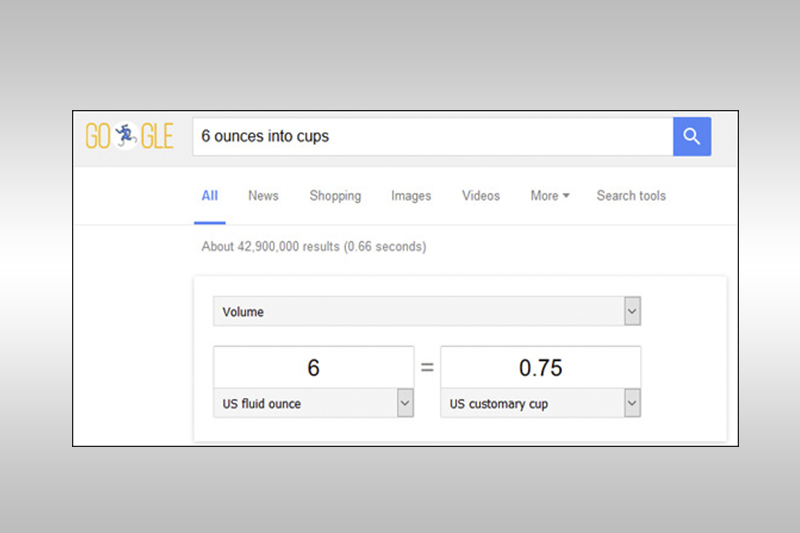Microsoft released the Windows 11 OS or Operating System over a year ago and it has been well-received as stable and user-friendly. The OS is not a large departure from the Windows 10 experience but does offer a lot of improvements over the older environment. With improvements and a free upgrade for Windows 10 users, it still lags in adoption though. As of November 2022, Windows 10 still owns a 69.75 percent usage share as compared to 16.13 percent for Windows 11. Continue reading
Tag Archives: search
14 Ways to Find Any Email Address in 10 Minutes or Less
There are many ways to reach out to your potential client and initiate a connection. Aside from setting up a meeting in person, sending emails often makes it to the top of the list. Obtaining email addresses, however, is not always a walk in the park. This is especially common in sales-driven jobs or those in communications. Continue reading
How to Search Safely With Google
 We all love Google, quickly finding everything we need on the Internet. It’s replaced dictionaries, encyclopedias, instruction manuals, newspapers and in many cases, even doctors. However, sometimes your search results aren’t the real thing and can be downright malicious. Here’s how to search safely:
We all love Google, quickly finding everything we need on the Internet. It’s replaced dictionaries, encyclopedias, instruction manuals, newspapers and in many cases, even doctors. However, sometimes your search results aren’t the real thing and can be downright malicious. Here’s how to search safely:
Pay attention to the URL in Google
Below every result title there’s a URL in green. No matter what the title says, this URL is where your click will take you. Unfortunately, cyber-criminals will often list their site with a familiar and trusted title but link you to their scam/malware pages.
For example, the title could be your bank name (eg, Example Bank), which seems legitimate, but the URL could be www.baabpjhg.com which is obviously not your bank. Sometimes they’ll attempt to trick you by putting the real site into the link too, eg www.baabpjhg.com/examplebank.com which makes it even more likely to catch you when skimming through results quickly. When you visit the page, it might look exactly like your bank’s site and ask for your login details, which are then harvested for attack. While jibberish in the link is pretty easy to spot, sometimes they’ll take advantage of a small typo that you can easily miss. For example, www.exampebank.com (missing the letter L).
Notice Google search results vs paid ads
Google does a pretty good job at making sure the most relevant and legitimate sites are at the top of the list. However paid ads will usually appear above them. Most of the time, these paid ads are also legitimate (and you can quickly check the URL to verify), but occasionally cybercriminals are able to promote their malicious site to the top and catch thousands of victims before being removed.
Believe Google’s malicious site alerts
Sometimes Google knows when something is wrong with a site. It could be a legitimate site that was recently hacked, a security setting that’s malfunctioned, or the site was reported to them as compromised. When this happens, Google stops you clicking through with a message saying “this website may be harmful” or “this site may harm your computer”. Stop immediately, and trust that Google has detected something you don’t want in your house.
Turn on safe search
You can filter out explicit results by turning on Google Safe Search. While not strictly a cyber-security issue, it can still provide a safer Google experience. Safe Search is normally suggested as a way to protect browsing children, but it also helps adults who aren’t interested in having their search results cluttered with inappropriate links, many of which lead to high-risk sites. Switch Safe Search on/off by clicking Settings > Safe Search.
Need some help securing your system? Give us a call at 08 8326 4364.
How To Become A Google-Fu Master
What’s one thing all teens can do better than adults, and it’s not Snapchat? They are experts at quickly locating information on the internet.
That’s Google-Fu – the ability to use search engines to research and find answers faster than a contestant on a tv game show.

Level 1 Mastery: Tell It What You Need
 Google is smart and can understand “conversational searches”. Let’s say you came across a great recipe online, but the measurements were imperial. Google has you covered. Simply tell it what you want to convert, and what you want to convert it into.
Google is smart and can understand “conversational searches”. Let’s say you came across a great recipe online, but the measurements were imperial. Google has you covered. Simply tell it what you want to convert, and what you want to convert it into.
[number] [unit] into [unit]
Say you want to convert ounces into cups, then type into Google “6 ounces into cups”…and hit enter. Google presents the answer, already calculated – AND it includes a handy drop down to change those measurements for your next ingredient.
Other popular shortcuts are:
- Release dates: [movie/game] release date
- Fast facts: [name of person] death
- Stats: [city] population
Level 2 Mastery: Limiting Result Type
With one click, you can tell Google that you only want images, videos news articles, maps, shopping, books or apps. Your initial results are listed as a combination of all types – you can see the ALL tab highlighted up the top. Just click one of the other tabs to refine your search.
Level 3 Mastery: Using Drop Downs.
One of the most popular Google-Fu moves is to limit results to sites from a particular country. This is great for finding local businesses or results from a specific country. Click SEARCH TOOLS to drop down a second menu. You’ll see the option to limit Country and even Time. Two extra clicks and my search is now limited to my home country and items from the past 7 days only.
Level 3 Mastery: Mastery: Using Operators.
Your final level of mastery, often used as a last resort when you’re just beginning to doubt whether the internet has the answer you’re seeking.
Enclosing your search terms in “quotation marks” binds the term together so Google can’t break it up. E.G. “Project Management”
Try other methods and soon your Google-Fu will be very strong.


